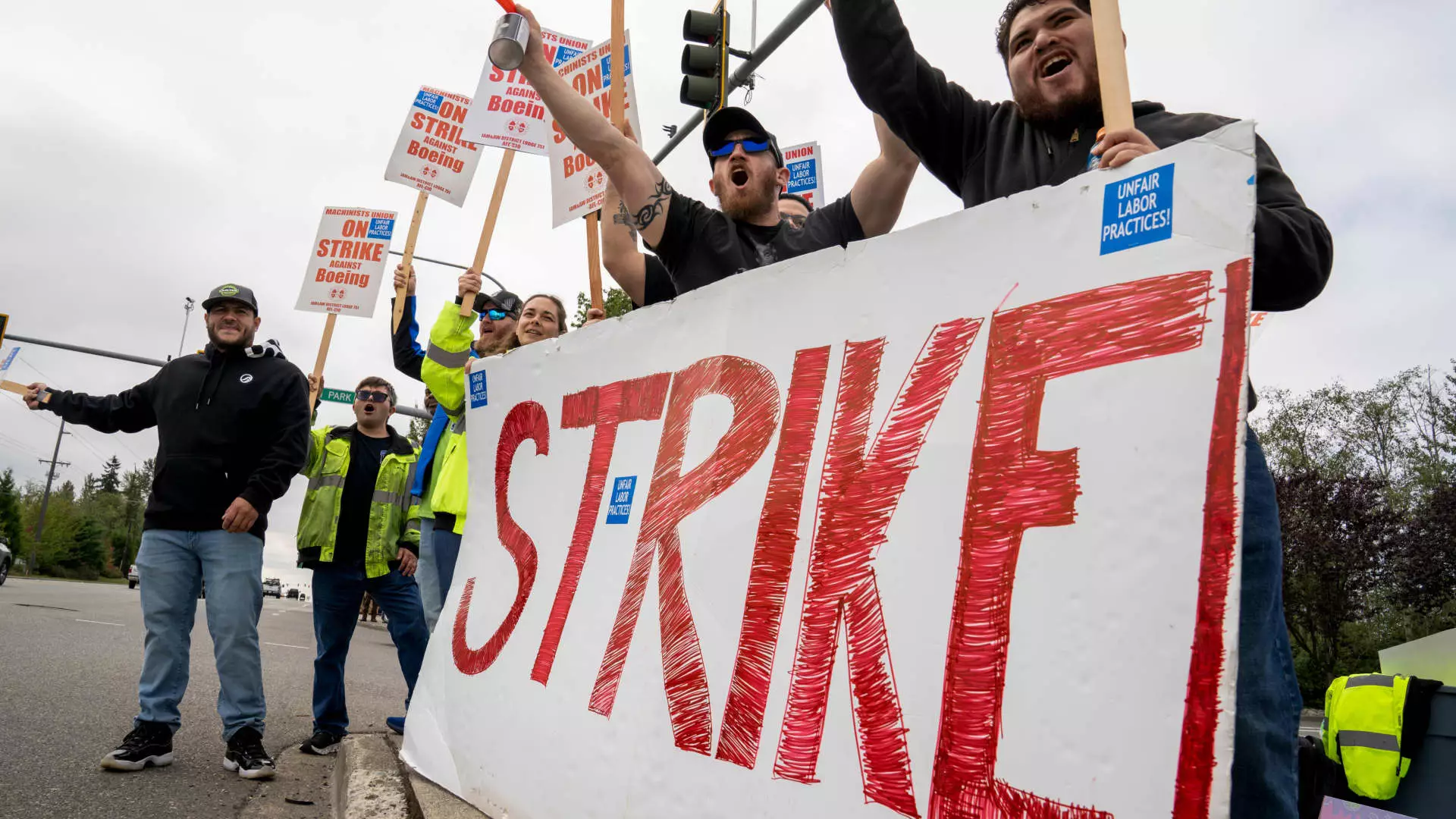In a significant labor dispute that has captivated industry attention, Boeing finds itself at a critical juncture following the onset of a strike involving its machinists. As the standoff progresses into its second week, the company has put forth what it characterizes as its “best and final” contract proposal, which has been met with mixed reactions. The strike, which is the first of its kind for the International Association of Machinists and Aerospace Workers since 2008, has resulted in a complete halt of most of Boeing’s aircraft production, amplifying the stakes for both the company and its workforce.
Boeing’s revised offer introduces a series of enhancements aimed at appeasing the striking machinists. The company proposes a salary increase of 30% over four years, a notable rise from its initial offer of 25%. This proposal also includes a doubled ratification bonus of $6,000 and the reinstatement of annual bonuses for machinists. Additionally, Boeing has promised improvements in its 401(k) match, effectively addressing concerns related to long-term financial stability for its employees. The initiative appears designed not only to ease immediate financial strains but also to bolster loyalty among its workforce, which has expressed dissatisfaction with prior compensation packages.
The union’s initial reaction suggests a cautious yet optimistic approach to the new proposal. Brian Bryant, the union’s international president, acknowledged that the current offer reflects Boeing’s capacity to do better and indicated an ongoing evaluation of the terms. However, the pressure is mounting for both parties as the proposal is contingent upon a timely ratification. Analysts estimate the ongoing strike is costing Boeing an astonishing $50 million daily. Furthermore, ratings agencies have hinted at potential downgrades for the aerospace giant if the situation doesn’t reach a resolution quickly.
The feelings among the workers are palpable and reflect a broader sense of urgency regarding their financial well-being. Many machinists turned to picket lines to voice their discontent after a staggering 94.6% voted against Boeing’s earlier offer. Essential to their discontent is the rising cost of living in the Seattle area, which they feel has not been adequately reflected in their wage proposals thus far. Notably, some workers have fortified their resolve by seeking additional employment opportunities outside of Boeing, such as food delivery and warehouse jobs, signifying a willingness to endure a prolonged strike if necessary.
As negotiations continue, the future of Boeing hangs in the balance, shadowed by the pressing need for a resolution. The new contract offer, while a marked improvement, remains subject to the prevailing sentiments of the workforce and the union’s strategic decisions. With the stakes heightened by significant financial repercussions and an uncertain economic landscape, both Boeing and its machinists face a pivotal moment that could reshape their relationship for years to come. The outcome will undoubtedly affect not just the immediate financial stability of the machinists but also the operational viability of one of the world’s foremost aerospace manufacturers.

